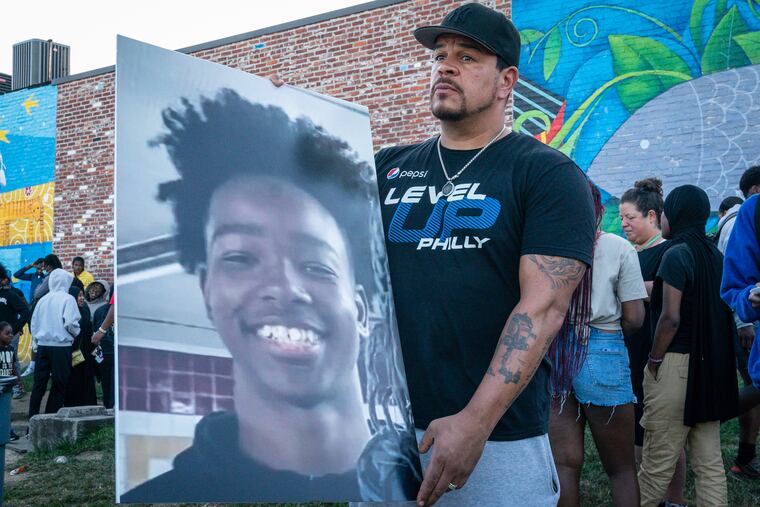Letters to the Editor | Sept. 29, 2023
Inquirer readers on the death of Hezekiah Bernard and criticism of Israeli government policies.

Never normal
The death of 12-year-old Hezekiah Bernard hit me hard. I never met him, but the fact that someone shot a young boy, then dumped his body in a dumpster, is too much to bear. Every day, the news reports stories about gun violence. Shootings have become so commonplace that we rationalize that large cities are dangerous. Violent acts are what happens when you mix poverty, frustration, and access to guns. This is now the Philadelphia story. However, what can a 12-year-old do to anger someone to the point of planning and executing him? I cling to the idea that it was planned, since it’s too chilling to think that someone randomly decided to take a young boy’s life on a whim, then disposed of his body as if it were trash.
Someone knows the perpetrator of this crime, but will sit in silence because they don’t want to “snitch.” As long as we remain silent about this type of violence, it will continue. These violent criminals who senselessly take life, without remorse, will continue to roam the streets and kill again. Communities will continue to live in fear, not knowing where or when the next bullet will strike. It’s time to revise the notion of snitching to cooperation. Only when this mindset is changed will we be able to hold criminals accountable.
The victim’s family and friends deserve closure and justice. Yesterday it was Hezekiah Bernard. Today it will be someone else, then tomorrow, and tomorrow, and so on. The vicious cycle will continue until those who know something, say something. Violence that goes unpunished will endure. We can’t lull ourselves into believing that the execution of a young boy is something that is a normal occurrence. It is not. We must be collectively outraged and solve this growing epidemic of violence in our city.
Michele Claybrook-Lucas, Media
Open dialogue
In a letter to the editor, Jason Holtzman, director of the Jewish Community Relations Council of the Jewish Federation of Greater Philadelphia, expressed alarm about the Palestine Writes literature festival at Penn. He needn’t have worried. We attended the festival as part of our commitment to T’shuvah, the Jewish practice of recognizing and repairing wrongs done to others. Judaism is committed to human rights for all people, but a tragic blind spot for many Jews is the oppression and suffering of Palestinians living in Israel, the occupied territories, and Gaza. This is changing as Jews learn more about the ways the government of Israel violates Jewish ethical teachings.
A recent example is the petition signed by nearly 3,000 Jews, including us, our synagogue, Mishkan Shalom, and our rabbi, Shawn Zevit. Called “Elephant in the Room” because American Jews so often avoid confronting this issue, the petition calls for equal rights for Palestinians in Israel and the occupied territories, and an overhaul in American Jewish education that provides our children with a more accurate account of Israel’s past and present. We didn’t encounter antisemitism at the festival. Instead, we heard legitimate criticism of Israeli government policies and stories of the suffering, resilience — and love — of people struggling to be recognized in their ancestral homeland and elsewhere for who they are: people created in the image of God.
Jim Feldman and Sharon Sigal, Ardmore
Join the conversation: Send letters to letters@inquirer.com. Limit length to 150 words and include home address and day and evening phone number. Letters run in The Inquirer six days a week on the editorial pages and online.